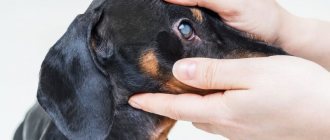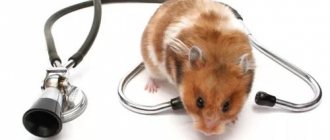Many Chihuahua diseases can be treated, the main thing is to detect the cause of the illness in time and take action. The health of dogs of this breed is naturally good, but no one is immune from the appearance of dandruff or epileptic attacks. If you notice that your pet has diarrhea, is vomiting, has a fever, his eyes are watering, or maybe he is coughing or has bad breath, then your baby is sick. What are the symptoms of various diseases, and what to do if they are detected, you will learn from this article.
What is a Chihuahua?
The Chihuahua is a miniature lap dog, its size is no more than 3 kg. If more than three, then the dog has serious deviations from the breed standard. They are very fragile and delicate, even a fall from a small height can cause serious injury. However, the small size and fragile body do not prevent the dog from being brave.
If they don’t like someone, they won’t notice that the opponent is many times larger than her. Although for Chihuahuas such outbursts of courage often end in tears. At a young age, these dogs are cowardly, and can even wet themselves from fear; some Chihuahuas may have this property even in adulthood.
Also, dogs of this breed are famous for their devotion to one person. They love and respect their owner very much, but if he suddenly decides to spend time with another pet, in front of the little chi, she will be offended and go to her house. These dogs do not require more than necessary care.
It is enough to carry out basic procedures regularly. Of course, it’s fun to have such a friend at home, but what to do if he doesn’t feel well, this article will tell you about it.
let's get acquainted
Already have a little bundle of energy called a Chihuahua in your home? Then you need to understand her character and habits, know what she looks like externally. It is better if the dog is studied by you from head to tail in advance.
This way you will know what a healthy puppy looks like, and subsequently avoid many problems - with heredity, with congenital defects and those acquired in early childhood.
So, you are dealing with tiny Chihuahua dogs, so the fragile skeleton of a recently born puppy needs special care. It is necessary to protect the dog from any injuries or falls, so as not to harm it.
Having small children in the house is undesirable, as they do not always listen to their parents and may drop the dog or step on it. Her small skull always has the shape of an apple, and the fontanelles do not close for a long time. Therefore, treat the head with caution and protect the puppy from stress.
Any loud sound can frighten a Chihuahua, and you should not shout at it.
This does not mean that education is cancelled. On the contrary, you need to educate - with commands and praise.
By nature, this princess is capricious until she undergoes socialization in your home. She is active and cheerful, but if you put her to bed with you, she can “pull the blanket over herself.”
This is in a figurative sense, of course, that is, the dog will consider itself the center of the universe and further education may bring disappointment to the owner. Also, do not feed the dog from the table and do not indulge every bark so that it calms down. On the contrary, immediately accustom the dog to its name and its place, to give voice only on command, and not when it wants.
Diseases that Chihuahuas suffer from
Chihuahuas have excellent health by nature, but still, if the dog exhibits symptoms of illness, then you need to take action immediately.
List of symptoms that should not be ignored:
- Temperature above 39 degrees;
- Diarrhea;
- Vomit;
- Strange substances are released from the nose;
- Poor appetite;
- Weight loss;
- Cough;
- Dandruff;
- Itching;
- Lameness;
- Parasites.
If your dog has one of these symptoms, then you need to take action quickly. It is better to consult a veterinarian rather than self-medicate.
Mitral valve insufficiency
Insufficiency is, in fact, degradation, deformation of this very valve. Moreover, the deformity is progressive, so I advise Chihuahua owners to familiarize themselves with this type of disease - and at the first opportunity to run to the veterinarian.
The fact is that due to deformation of the valve, a certain part of the blood returns to the left atrium. The pressure there increases. Blood stagnates, which in turn leads to heart failure.
IMPORTANT: In order to protect a Chihuahua from such a scourge, it is worth conducting electrocardiography and echocardiography approximately once a year.
And, of course, it is equally important to monitor the symptoms, which are expressed in the following:
- Labored breathing. A Chihuahua can breathe very heavily and wheeze at the same time.
- Cough.
- Chihuahuas with heart failure are lethargic. They tend to avoid activity. And if physical activity does occur, it is poorly tolerated. In this case, it is important not to insist on training the dog, but to show it to a specialist.
Eye diseases
Chihuahuas have much larger eyeballs than other dogs. And because of this, the dog develops eye diseases. If your dog has redness, tearfulness, dullness in the eyes, or the dog blinks frequently, then it may have one of the following diseases:
- Glaucoma;
- Cataract;
- Glaucoma.
In this case, you need to immediately go to a canine ophthalmologist. The doctor will make an accurate diagnosis and prescribe the required course of treatment for the dog.
Chihuahuas also have a problem with their eyes falling out of their sockets, this is due to the fact that the eyeballs are attached only to the eyelids. Signs that the eyes may be falling out include bleeding or the dog being afraid of light. You need to quickly take your dog to the hospital, but before that you should:
- Provide the dog with peace and make sure that it does not reach the eyes;
- Wipe your eyes with saline solution and apply ointment;
- Replacing the damage so that it is not cold.
Sudden seizures
Regular uncontrollable seizures in Chihuahua dogs with possible loss of consciousness are caused by epilepsy. Epilepsy occurs due to a malfunction of the dog’s brain.
Epilepsy can be either hereditary or acquired. This disease is incurable, and the number of attacks only increases over time. Epilepsy begins to manifest itself between ten months and three years.
Seizures of epilepsy can be noticed in advance: the Chihuahua suddenly begins to get nervous, becomes timid and tries to hide somewhere.
When an epileptic seizure begins, the animal first falls sideways and the body becomes stiff. Then drooling occurs, and involuntary bowel movements occur in the bladder and intestines. The dog constantly moves its jaw, howls and twitches its paws. The attack can last a maximum of ninety seconds.
To suppress an epileptic attack, it is necessary to use special medications, such as Phenlepsin or Hexamidine.
Allergic diseases
When a dog exhibits allergy symptoms, it should be taken to the veterinarian. Here are the allergy symptoms:
- Itching on the skin. This may indicate that the Chihuahua has an infection, fleas, or ticks;
- Hair falls out. Most likely the dog has hypothyroidism, demodicosis or folliculitis;
- Ear discharge. This can be the cause of any allergy.
My mouth stinks. This indicates problems with the skin or the presence of mucus in the mouth;
Dandruff. It may indicate an allergy to any food.
Poisoning
Stale food, allergic reactions to some type of product or substance, or the Chihuahua eating other people's excrement - all this can lead to poisoning of the dog. In such cases, the animal vomits, diarrhea begins, rashes, redness on the skin, and hair loss are possible. If there are any suspicious signs, consult a doctor.
Chihuahua has diarrhea
Diarrhea is the periodic occurrence of loose stool in a dog. In this case, it is better to take your dog to the doctor because diarrhea can be caused for various reasons.
Causes of diarrhea:
- Infectious viruses;
- The dog does not have the right food;
- Unbalanced diet;
- The dog ate expired food;
- Cancer diseases;
- The dog has parasites;
- Your Chihuahua may have gastritis or an ulcer;
- There may be problems with the kidneys, liver or pancreas;
- Binge eating;
- Mental or nervous disorders;
- Allergy;
- Chemical poisoning;
- Maybe the dog’s body lacks enzymes;
- Action of drugs.
Main types of Chihuahua pathologies
All Chihuahua health problems can be divided into several large groups.
Types of pathologies:
- Dental problems. Diseases of the oral cavity.
- Problems with eyes and vision. Ophthalmological diseases.
- Allergic reactions.
- Epileptic disorders.
- Respiratory diseases.
- Gastrointestinal pathologies (diarrhea, intestinal obstruction).
- Skin diseases.
- Infectious, respiratory diseases.
- Parasitic diseases.
- Problems with excess weight. Obesity.
- Reproductive pathologies.
- Bone diseases and joint problems.
- Injuries.
Important: most diseases are the result of unscrupulous breeding of the breed.
Vomit
Vomiting can also be caused by some diseases that are presented in the list above. Before your dog starts vomiting, he may experience the following:
- Drooling frequently;
- The dog often walks small;
- Rumbling in the stomach;
- The dog whines.
The very first thing to do is call a veterinarian. He will determine the cause and prescribe treatment.
Important: On the first day of vomiting, it is better to put the dog on a dry diet. This will help remove toxins from the body.
Choosing a veterinary clinic
We determine the veterinary clinic where you plan to go. A big PR company doesn't promise quality. The price is explained precisely by the huge amount of funds invested in advertising and “signboarding” of the establishment.
It’s great if you have the opportunity to ask your friends about clinics where their pets were treated “humanely.” Even if you travel far from them, it may be worth sacrificing time for the health of your pet.
We suggest you familiarize yourself with: Diseases of pigs and their treatment peptic ulcer disease
A few more tips on how to spot an unverified veterinary clinic:
- Refusal to provide certificates and licenses for veterinary activities.
- Strange and suspicious behavior of the veterinarian (inconsistency, flattery, attempts to intimidate, shouting).
- Prices are too low (compared to other organizations).
- Refusal to freely visit the veterinary clinic.
“We have a sanitary day”
Beware of scammers!
When you contact the veterinary clinic, you are informed: “we cannot accept you at this address, sanitary day/repair/inspection” and so on. How much intelligence does a dispatcher have? The client is persuaded to have a veterinarian come to his home. The price does not change.
Such a veterinary clinic can exist purely nominally. And the invited “Aibolit” will not bear responsibility. There is a high probability of running into a person without a veterinary diploma or simply an unprofessional.
It is better to find time to visit the veterinary clinic on your own. This is safer for the animal.
Fleas on Chihuahuas
No dog breed is immune to fleas. Likewise, Chihuahuas can develop these blood-sucking parasites. If a dog has fleas, its behavior changes greatly:
- The dog is nervous;
- Itches often;
- Bites the fur.
In this case, you need to carefully examine the animal’s body. The presence of fleas is indicated by red dots from bites.
To rid your pet of fleas, you need to use special products, of which there are many on sale.
Zooshampoo
Such shampoos contain substances that can rid your dog of fleas in a short time. For prevention, you can re-bathe her with this shampoo after 2-3 weeks.
Important: For Chihuahuas, you should choose a shampoo that is suitable specifically for this breed of dog.
Flea drops
In order not to subject your dog to water procedures again, you can use special drops. Just one drop on the dog’s withers is enough and within a day the fleas will disappear.
Important: Drops are very toxic, so it is better not to use them often.
Aerosols
You need to apply the aerosol and rub evenly over your entire body. The validity period of this product is about a month.
Flea collar
The collar contains substances that kill fleas. The skin is poisoned by this substance and when a flea bites a dog, it dies immediately. The collar can last about 3 months.
Unpleasant smell
If your Chihuahua has bad breath, it could be a symptom of the following conditions:
- pulpitis – inflammation of the teeth;
- caries – tooth decay;
- periodontitis – destruction of the base of the tooth followed by the appearance of a cyst in the oral cavity;
All these diseases are preceded by the appearance of plaque and tartar. And as a result - bad breath.
What can you do to get rid of bad breath from your dog? You need to give her special substances that can neutralize the smell. Parsley oil or anise will do a great job with this. Treats containing chlorophyll or bacteria will also help with this smelly problem.
Vaccinations
Getting vaccinated is not a mandatory procedure, but it is still better to get them to prevent diseases. It will be much more economical and easier than treatment. Below is a vaccination schedule for Chihuahuas by age:
- The first vaccination is given at two months. It is done to prevent enteritis, plague, leptospirosis and parainfluenza and other diseases. The drug Nobivak Lepto is suitable for her.;
- The second vaccination is given at three months. This is prevention against the same diseases for which the vaccine was given at two months.;
- The third vaccination is given at three months. The same Nobivak Lepto is used. After the third vaccine, this drug needs to be administered only after a year.;
- The last vaccination is given a year. This time the vaccine is against rabies. For this purpose, the drug Eurican LR is used.
Digestion
Digestive system disorders occur due to poor diet - consumption of junk food and overeating. As a result, gastritis, ulcers, pancreatitis, and liver problems may occur. Of course, the dog will not let you know that it has a stomach ache, but symptoms such as vomiting, diarrhea or constipation, general lethargy and loss of appetite clearly demonstrate digestive problems. In particular, diarrhea can be caused not only by overeating or poisoning, but also by the presence of parasites (worms) in the body or an allergy to certain foods (or water). Severe diarrhea along with lethargy and vomiting may indicate an infection and requires mandatory veterinary observation and careful treatment.
Constipation
Improper feeding can cause not only diarrhea, but also constipation. It is often provoked by inappropriate dry food, too rich broths, bones, and fiber that is difficult to digest. Usually you can cope with constipation on your own with the help of natural remedies - kefir, vegetable oil or an enema. In addition, lactulose-based medications can be used to treat constipation, after consulting with your veterinarian.
Why do Chihuahuas shake?
This breed of dog tends to tremble, but if it trembles very often, then there may be another reason for this.
Reasons why Chihuahuas shake:
- Cold. These dogs have a thin undercoat, so they can easily get cold. Therefore, you need to buy your pet a jacket;
- Excitement. Fear, joy, or a change of scenery can cause a Chihuahua to tremble;
- Low blood sugar. In this case, you need to change the diet and feed your pet according to time.
How to find out the truth
Another possible way for veterinarians to make dishonest money is to conceal the diagnosis. Let's say a veterinarian discovers a malignant tumor in a cat. But if he says that the tumor is benign and can be treated... The owner, who dotes on her pet, will give money for already useless procedures, medications and surgical interventions.
The veterinarian may deliberately “downplay” the diagnosis in order to earn more money. If something doesn't add up, insist on clarification. Don’t be intimidated by unfamiliar terms - ask for a short break and try to find information on the Internet.
You are free to leave (or threaten to do so) to another clinic at any time.
Make sure that the veterinary clinic is honest - get tested in an independent laboratory.
Justice
What to do if an animal was injured as a result of unprofessional actions of a veterinarian:
- Write an official complaint addressed to the head of the clinic.
- File a complaint with the city veterinary department.
- You can contact Rospotrebnadzor.
- Contact a lawyer for help
The Law “On the Protection of Consumer Rights” and Article 245 of the Criminal Code “Cruelty to Animals” are the grounds for considering claims regarding the work of veterinary clinics.
How long does a Chihuahua live?
It is generally believed that the smaller the dog breed, the longer they live. Unfortunately, this rule does not apply to Chihuahuas. The larger the dogs of this breed, the longer it pleases its owners.
So an ordinary Chihuahua weighing three kg can live as long as 20 years . And a dwarf, whose weight does not reach one kilogram, will live no more than 10 years. But every rule has an exception, and a dwarf Chihuahua can live up to 15-20 years.
The Chihuahua is a decorative dog; first of all, people take it to decorate themselves or their apartment with a small, cute pet. But in order for your pet to feel good and live for many years, you need to carefully monitor its health.
Common acquired diseases of Chihuahuas: symptoms and treatment
The owner can understand that something is wrong with the pet by the following signs:
- frequent uncontrolled urination;
- elevated temperature;
- vomit;
- diarrhea;
- weight gain or severe loss;
- cough;
- itching;
- poor appetite or its complete absence for more than a day;
- discharge from the eyes and nose;
- thirst.
If your Chihuahua exhibits any of these signs, the dog should be taken to a veterinarian.
This breed of dog has watery eyes as a natural condition. But they need regular care. First of all, the owner must daily monitor what color this discharge is (ideally, if it is transparent). You need to wipe your eyes several times a day, removing brown crusts, as they form a favorable environment for harmful microorganisms. To do this, it is recommended to use a napkin or cotton swab soaked in a special gel.
We suggest you read: How does herpes appear on a cat’s lip? How to treat herpes on a cat’s lip?
If the dog begins to rub its eyes with its paw, and the discharge becomes opaque, frequent and profuse, the Chihuahua needs to be taken to the vet immediately.
The eyes are watery, cloudy, the animal is rubbing them, redness or maybe dryness has appeared. These are the first signs indicating that the dog is sick. In this case, you cannot hesitate, you must urgently go to the veterinarian. You can’t cope without a doctor, but you can only do more harm and progress the disease to such an extent that it will be very difficult to get out.
And what’s even worse is that complications and side effects may begin. The rapid turn of events can even lead to loss of vision. And you definitely shouldn’t self-medicate. Only wipe with saline solution or use ointment as directed by a doctor. Naturally, the dog needs to be calmed down, perhaps given sedatives.
Progressive retinal atrophy is a hereditary disease that appears after the age of four. This disease can lead to blindness. Symptoms of this disease often manifest themselves as follows: the dog begins to bump into objects and behaves insecurely. Other signs are fear of sudden changes in light, lack of movement near the eyes. It could be a cataract. It is better to consult an ophthalmologist who will help establish the correct diagnosis.
Chihuahuas also suffer from cardiovascular diseases.
Due to the fact that this breed has a peculiarity in the structure of the head, namely a shortened skull, diseases of the respiratory system often occur in dogs. And it is against the background of respiratory problems and diseases that Chihuahua dogs begin to develop diseases of the cardiovascular system. When a Chihuahua begins to stop breathing and sink its tongue, then, as a consequence of these reasons, cardiac arrhythmia and dystonia occur. Most often, medication is used, and if the case requires it, surgical interventions are also performed.
We continue to look at Chihuahua diseases, symptoms and treatment. Dislocations, injuries from jumping, improper development, age - all this affects the musculoskeletal system of the Chihuahua. Dislocations of the elbow joint and knee are known. Treatment depends on the severity. Of course, there are disturbances in cartilaginous and bone tissues.
Chihuahuas (both males and females) have deviations in sexual development.
In males, the most common phenomenon is cryptorchidism. This is one or two testes that have not descended at once. The veterinarian looks and determines how serious the pathology is. If you can get by with massages and hormonal therapy, then the dog is not operated on. If the pathology is complex, then a special operation is prescribed. The intervention is recommended for up to four years.
Let's look at pathologies in bitches. Due to the fact that dogs are very small, they have underdeveloped genitals and cannot become pregnant. As a result, they cannot bear offspring. Also, such dogs cannot give birth on their own, so they have to be helped through surgery, namely a caesarean section.
They are quite common, varied and often associated with feeding errors. So, if a dog is overfed, obesity may occur, especially castrated and sterilized animals are susceptible to it. The first sign is excessive excess weight, which has a negative effect on the heart. Treatment should include reducing the diet and excluding fatty foods.
Perverted appetite (a dog eating its own feces, stones, earth) can be a sign of serious diseases of the internal organs.
Errors in nutrition can also cause gastritis, which can be determined by the following symptoms: vomiting, weight loss, dull hair, dandruff. If at least two or three signs are present, you should contact a veterinary clinic for treatment, since advanced forms can be fatal.
At home, it is quite easy to diagnose constipation - if the dog has problems with bowel movements: he whines, spins in one place, strains, but cannot recover. Constipation without proper attention can lead to serious consequences, since undigested food accumulates in the intestines and can lead to rupture. If the animal's skin has acquired an unpleasant yellow tint, this may be a signal of liver disease; only a doctor can treat them.
The health of a Chihuahua can hardly be called unshakable. Due to their anatomy, they are most prone to developing problems with the eyes, musculoskeletal system, allergies, colds and some other diseases.
Eye diseases
The structural features of the Chihuahua's large eyes determine the tendency to develop:
- keratoconjunctivitis (dry eye syndrome) is an inflammatory process accompanied by dry mucous membranes and can lead to corneal detachment;
- glaucoma is a pathology accompanied by increased intracranial pressure; in the absence of intervention, the optic nerve dies;
- cataracts – clouding of the lens, which leads to progressive deterioration of vision;
- eye loss - protrusion caused by injury or hitting the head on a hard object.
Any eye disease, if not diagnosed in a timely manner and without proper treatment, can lead to complete loss of vision. Their signs are changes in the color of the cornea, the appearance of discharge, swelling and itching.
Epilepsy
Epilepsy is a neurological disease manifested by seizures, involuntary profuse salivation and bowel movements, and may be accompanied by loss of consciousness. On average, an attack lasts no longer than 1.5 minutes. Pathology can be either genetically determined or occur during the life of the animal.
As the disease worsens, the number of attacks increases. Directly in front of him, the Chihuahua becomes timid and begins to look for a place to hide.
It is impossible to completely cure epilepsy, but it is quite possible to keep the disease under control. To do this, the animal should be given medications specifically prescribed individually by a veterinarian.
Do Chihuahuas often get colds? If you do not create the right living conditions for your baby, coughing, runny nose and other manifestations of respiratory viral diseases will occur regularly. Dogs of this breed are very susceptible to drafts and cold, so they need warm clothing, a specially equipped bed and maximum protection from drafts.
Older and overweight Chihuahuas may develop tracheal collapse - severe spasm of the trachea, which is accompanied by inflammation and accumulation of mucus. This shows up:
- severe cough;
- attacks of suffocation;
- frequent, hoarse breathing;
- anxiety of the animal.
Tracheal collapse can be fatal in severe cases.
The possibility of infection with plague, viral hepatitis and other dangerous diseases cannot be ruled out. To avoid this, it is recommended to get preventive vaccinations in a timely manner.
Skin diseases
The most common problem that occurs in Chihuahuas is dandruff. This may be the result of poor diet, stress, using the wrong shampoo, allergies, or the presence of harmful substances in bathing water. Vitamin A is usually prescribed to correct the problem.
Obesity
Obesity is a typical disease for the Chihuahua breed.
If you ignore the problem and continue to overfeed the animal, there is a high risk of developing diabetes mellitus, hypertension and tracheal collapse.
Parasites and fleas
Chihuahuas are no less susceptible to infection with worms, fleas, ticks and other parasites than other dog breeds. In addition to causing discomfort, they are also carriers of a variety of infections. Therefore, it is very important to get vaccinated annually, deworm your dog every 6 months, and use special flea collars or drops.
Allergy
Chihuahuas are prone to various types of allergies. It can be for food, medicines, vitamin and mineral supplements, hygiene products, dust, pollen, etc. Even artificial clothing can cause allergies.
An allergic reaction may occur:
- tearfulness;
- redness of the skin and itching;
- the appearance of dandruff;
- hair loss;
- discharge from the nose or ears.
We suggest you read: How to calculate the amount of dry food for a puppy
https://www.youtube.com/watch?v=
Any dog can have hypersensitivity to various substances, which must be taken into account when searching for an allergen. If an allergic reaction occurs, you should first review the pet’s natural diet or switch it to hypoallergenic dry food.
If new shampoos, household chemicals or vitamin complexes have recently been introduced into use, you should stop using them and evaluate the dog’s body’s reaction. If difficulties arise in determining the cause of an allergy, you should contact a veterinarian, who, using laboratory research methods, can accurately identify the allergen.
Cough and sneeze
If your Chihuahua has a persistent, paroxysmal cough that makes it seem like your pet is choking on something, this may be a symptom of tracheal collapse.
This pathology, in which the trachea narrows due to soft tissue, can be congenital or acquired as a result of obesity or lack of physical activity..
Drug treatment of the inflammatory process leading to tracheal collapse is carried out strictly under the supervision of a veterinarian.
If the disease is caused by obesity, you will additionally need to follow a fasting diet.
Also, a cough, especially coupled with sneezing, can be caused by an allergy, cold or viral infection.
Read about other causes of cough in Chihuahuas here.
Hydrocephalus
Dwarf breeds are predisposed to it. It can develop against the background of birth trauma. The disease occurs due to an increase in the volume of cerebrospinal fluid. Leads to severe neurological disorders. A sick dog often throws its head back, has persistent head tilts, coordination of movements is impaired, and vision decreases. Hydrocephalus is incurable.
In the photo, the Chihuahua has hydrocephalus of the brain.
Read more about cerebral hydrocephalus in dogs, the causes of the disease and how to help your pet.
Health features and general signs of illness in a dog
Because of their size, Chihuahuas appear to be very delicate and fragile. This is partly true. Miniature animals have a genetic predisposition to certain diseases.
Chihuahua dogs are a rather sickly breed.
Puppies are born with an open fontanel; fusion of the skull bones occurs in the first four months of life. But sometimes the fontanel remains open. Any head injury in this case can be fatal for the pet.
Dogs have a weak skeletal system, and their owners often turn to the veterinarian with fractures. You need to protect your pet from jumping from heights. It often happens that a dog is accidentally stepped on or pinched by a door.
Chihuahuas are prone to patella and elbow dislocations and are often diagnosed with hip dysplasia.
Much less often, pets have heart problems - endocarditis, mitral valve disease and pulmonary stenosis.
Animals with such problems do not reproduce.
The breed is predisposed to a number of diseases.
General signs of the disease:
- vomit;
- diarrhea;
- refusal of food and water;
- discharge from their eyes, nose or ears;
- increased body temperature;
- cough and breathing problems;
- weight loss;
- lethargy;
- itching and dandruff;
- lameness;
- convulsions.
Important! If you find one or more of the symptoms described above in your baby, or the dog’s condition is worsening, contact a specialist. The sooner you seek help from a veterinarian, the greater the chance to cure your dog quickly, easily and without health consequences.











